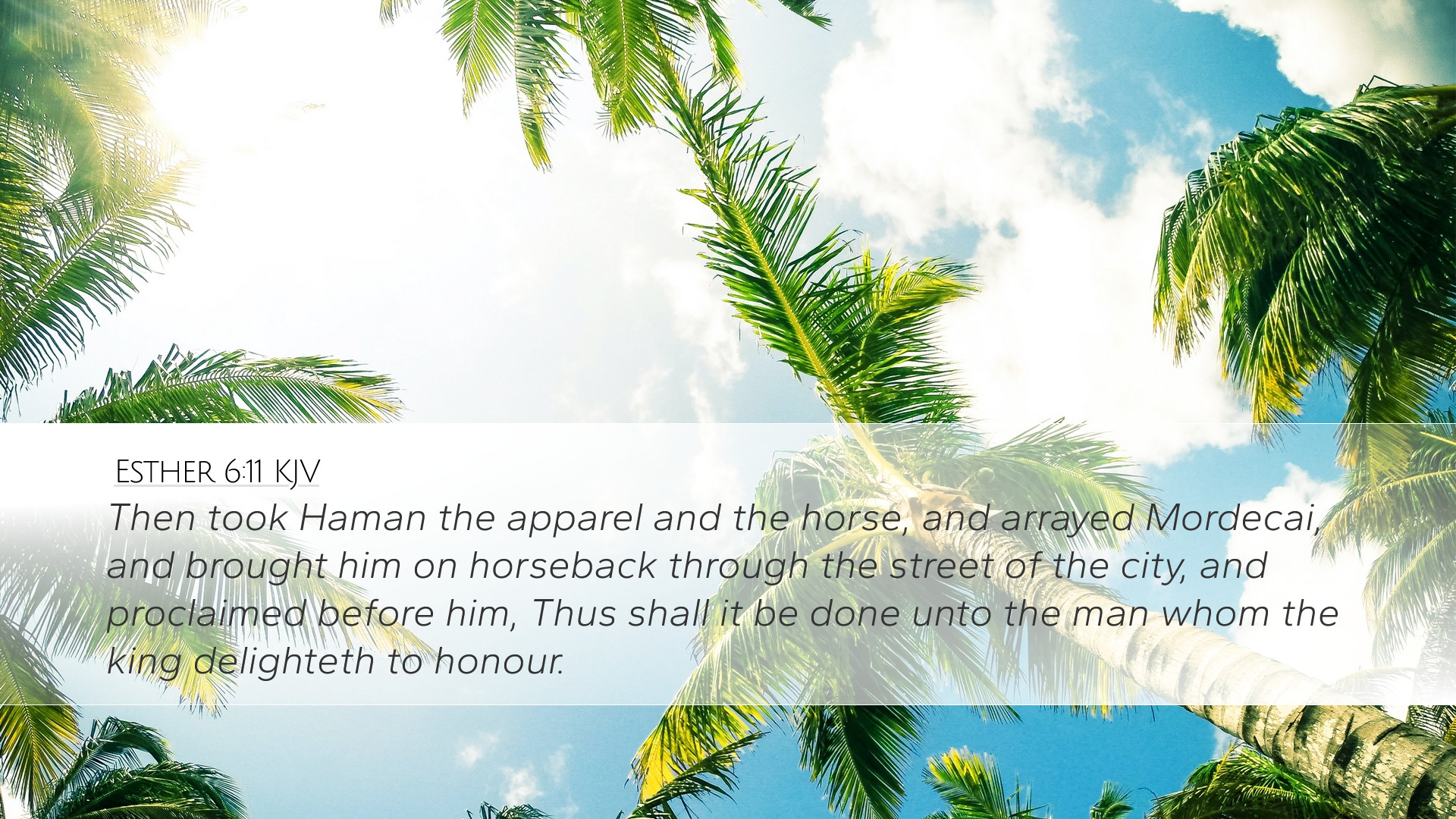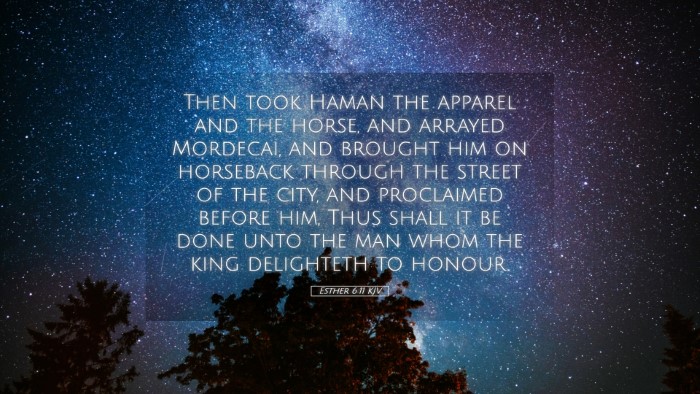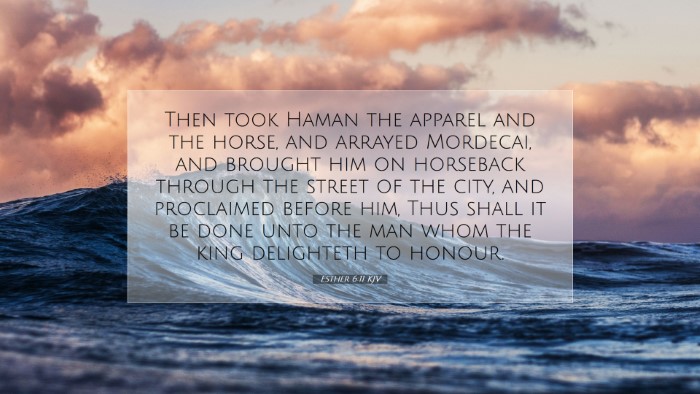Old Testament
Genesis Exodus Leviticus Numbers Deuteronomy Joshua Judges Ruth 1 Samuel 2 Samuel 1 Kings 2 Kings 1 Chronicles 2 Chronicles Ezra Nehemiah Esther Job Psalms Proverbs Ecclesiastes Song of Solomon Isaiah Jeremiah Lamentations Ezekiel Daniel Hosea Joel Amos Obadiah Jonah Micah Nahum Habakkuk Zephaniah Haggai Zechariah MalachiEsther 6:11
Esther 6:11 KJV
Then took Haman the apparel and the horse, and arrayed Mordecai, and brought him on horseback through the street of the city, and proclaimed before him, Thus shall it be done unto the man whom the king delighteth to honour.
Esther 6:11 Bible Commentary
Commentary on Esther 6:11
Verse Context: Esther 6:11 states, "So Haman took the robes and the horse and dressed Mordecai and led him through the city square, proclaiming before him, 'Thus shall it be done to the man whom the king delights to honor!'" This verse comes at a pivotal moment in the narrative, demonstrating themes of divine justice and reversal of fortunes.
Exegesis of Esther 6:11
This verse captures the dramatic twist in the fate of Mordecai, illustrating the principle that God’s providence often works through unexpected means. Haman, filled with self-importance, believes he is executing his plan to honor himself but ends up honoring his enemy. This sets the stage for the unfolding of divine justice.
Theological Implications
Divine Providence: The events in Esther illustrate the hand of God moving unseen in the midst of human affairs. Haman's actions lead to his own downfall. Commentators like Matthew Henry emphasize that God can turn the plans of the wicked against them, highlighting His ultimate sovereignty over all situations.
- Matthew Henry: "God can and often does reverse the counsels and measures of wicked men, and turns them into their own ruin. Haman had plotted against Mordecai but is forced to honor him instead."
- Albert Barnes: "This event is a remarkable example of how God can change the course of events for His people, all while the wicked think they are in control."
- Adam Clarke: "Haman’s honor of Mordecai serves to illustrate God’s justice. The ‘pride of man’ often leads to their own ‘shame,’ a theme prevalent throughout scripture."
Character Analysis
This verse focalizes two contrasting characters: Haman and Mordecai. Haman’s hubris blinds him to the real situation, while Mordecai, who had earlier been overlooked, is now publicly recognized.
- Haman: His ambition and desire for power lead to his own humiliation. His attempts to destroy Mordecai ironically become his own downfall.
- Mordecai: The events testify to his faithfulness and unwavering loyalty to God’s people. His quiet strength is rewarded, even in the face of dire circumstances.
Literary Structure and Devices
Esther 6:11 employs irony and dramatic reversal as key literary devices. The absurdity of Haman’s situation acts as both a narrative climax and a moral lesson.
- Irony: Haman's desire to elevate himself backfires spectacularly, serving as a reminder that pride comes before a fall.
- Dramatic Reversal: This moment illustrates a turning point in the story, where the oppressed (Mordecai) is exalted, and the oppressor (Haman) is debased.
Application for Today
Modern readers and scholars can derive several valuable lessons from Esther 6:11:
- God’s Sovereignty: Trusting in God's plan, even when circumstances appear dire. The narrative encourages believers that God is at work in every situation.
- Moral Resilience: Mordecai’s steadfast character teaches the importance of integrity and faithfulness amidst trials.
- Warning Against Pride: Haman’s fall serves as a cautionary tale. Humility is vital in our spiritual walk, reminding us to seek honor from God rather than from man.
Conclusion
Esther 6:11 encapsulates a profound truth: God's plans, though often hidden, are always in motion. The reversal of fortunes experienced by Haman and Mordecai is not just a historical account but a timeless reminder of God’s ultimate authority over human affairs. For pastors, students, and theologians, this verse invites deeper reflection on the nature of honor, pride, and the Lord’s unfailing justice in our lives.


